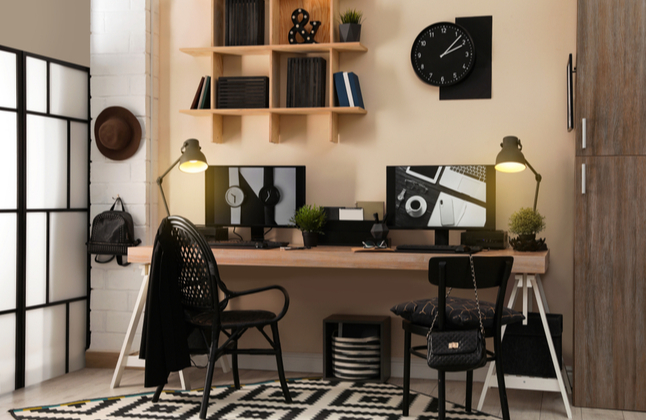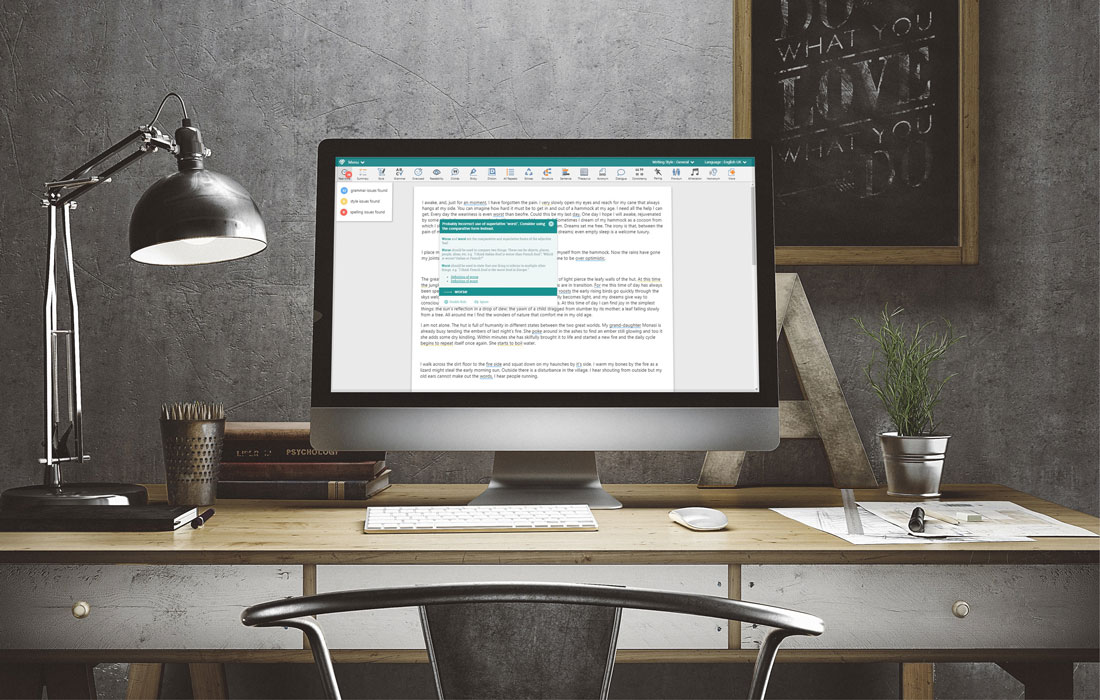
Consistency is to writing as frosting is to cake. And one of the most important elements of consistency is using the same space.
So, what’s the best way to find your best writing environment? We’ll explore in this article with a few steps.
Begin with Introspection
Start by reflecting on your favorite writing sessions. Where were you when you wrote some of your best work? Were you in a specific place? And what were the conditions like?
For example, I remember when I wrote my first-ever full manuscript. My wife and I were living in Colorado at the time. I woke up every morning and wrote at the kitchen table.
We don’t live in that apartment anymore and New York State isn’t quite as cool as Colorado, but the conditions, I found, can be replicated. I now write in a small office upstairs in our house. It’s quiet and there’s plenty of light, just like at the kitchen table in Colorado. Furthermore, I’m still partial to writing in the morning.
So, we’re not moving back to Colorado. But we can replicate those conditions. And that’s a good starting point.
Experiment
But what if you can’t think of any conditions that specific? Maybe you’re a relatively new writer, or maybe you’ve written good work in several diverse places. In this case, I recommend experimentation.

It’s just like what your mom said about food when you were a kid. “How do you know you don’t like it if you won’t try it?” So, for the sake of your mom (and yourself), try different surroundings with different conditions. Here are a few possible combinations:
- A quiet room in your house
- Your local Starbucks (yes, it’s okay to be cliché)
- Your local library
- A bustling restaurant around lunch or dinner time
- Your kitchen table
- An outdoor patio on a nice day
- A silent hyperbaric chamber
- A jazz club
Some of these are facetious, but you get the point. Try a variety of places and volumes. See where you do your best writing or where you feel most comfortable. Some writers find they need a room just for writing. Some find they need a separate space altogether. Though rare, some writers even find they need chaos around them. Try a few and see what works for you.

Time of Day Matters!
In addition to these places and conditions, consider the time of day. Do you do your best writing in the morning, afternoon, or at night?
Experimentation is likely unnecessary here. If you know you’re not a morning person, you probably need not try a morning writing session. And if you go to bed at 9 p.m. (like me), you’re probably not a nighttime writer. Pick a time when you’re awake and feeling good. Then try to write at that time every single day.
Of course, your schedule will dictate when you can and can’t write. If you have a flexible schedule (maybe you work remotely, for instance), you could probably take a break in the middle of the day to do some writing. If you’re on-call in the emergency room, gunshot victims probably won’t care that you’re penning a novel.
That said, you might have to shift your schedule to accommodate your writing. For example, I work a nine to five office job. I need about three hours to get my daily writing done. As mentioned, I never feel comfortable writing at night—my best time is the morning. Therefore, I go to sleep very early and wake up very early. It’s what’s best for my writing, so that’s my schedule.
I wouldn’t recommend quitting your job so you can write whenever you want, but the point still stands. Find your optimal time of day, then do whatever you can to make it writing time (within reason).

Summing It Up
By now you might be wondering, Why does a writing space matter? Why can’t I just write when and where I feel like it?
Hey, I suppose you could. I’m not one to tell anybody what to do (my cats don’t listen to me when I try, anyway). But a writing space leads to consistency, and consistency leads to habit. And when writing becomes a habit, you improve. Like any other skill, writing requires practice.

Some writers who don’t have a writing space tend to wait for inspiration to find them. There are exceptions, of course, but generally speaking, if you only write when you feel inspired, you’re probably not writing consistently enough to improve. It would be like me shooting threes in the driveway only when I feel like it, then expecting to become Steph Curry. Not gonna happen.
Find your space. Form a habit. Practice, practice, practice. It will help you become an even better writer than you already are.

